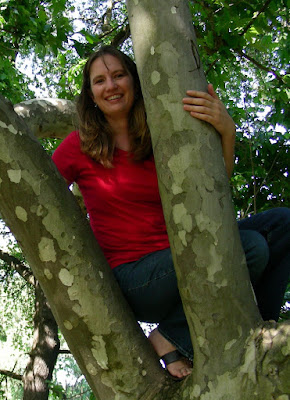How I would love to have an x-ray right now. Several days ago a small patient was brought to us. We were told that this 6 or 7 year old girl had been running and fell, injuring her right leg. Her name is Libala Justine.
It was dark out, we had no good place to examine her, and she was very scared and unable to tell us where she was hurting or how she was hurt. It seemed that even the smallest movement caused her more pain. Her left shoulder was painful, with a small deformity and some neurological deficit in the arm, suggesting either a dislocation or a break of the proximal humorous, but she was using her arm in spite of the pain. Her back was also injured; the left thoracic region of the ribcage was quite painful and swollen with sharp corners to the ribs on one side. She also had abrasions on her back that looked to be a few days old. But when we examined her back, the part she complained the most about was lower, just to the left of the sacrum. We were told that this is where the traditional healer removed some stones from her body. There was no evidence of abrasion and only one superficial cut, so these stones were obviously spiritual in nature and believed to be the cause of the illness. The most difficult of her injuries to localize was the one that concerned her father the most. He told us that her right upper leg was injured from the fall. We immediately suspected a femur fracture, but there was no deformity and no shortening of the bone. We moved up to the pelvis, thinking that the injury must be more proximal, but without x-ray, we were not able to find the source of her pain. Out of options for the night, we put her in a sling to stabilize her shoulder and told her father to keep her in bed.
The next morning she came back, the sling so pulled out of place that it was doing more harm than good, and her father was urging her to walk to the examination table. Our examination, this time in the light of day, just confirmed the previous night’s conclusion that we really needed an x-ray, but one was not available except in the provincial capital, and even with an x-ray, proper treatment would not be available. The best thing for her injuries was bedrest, pain medication and a lot of prayers.
We talked at length with the father, who’s story had changed from the night before, though he insisted that her injuries were from a simple fall. The injuries did not tell the same story. Libala’s behavior was equally confusing. Though our examination caused her pain, she reached out to us, the strangers, for comfort and support. When sitting up and laying down were too painful, she leaned against my chest and held tightly to my arms. Frequently I have the desire to take a patient home with me. The suspicious nature of Libala’s injuries and her need for physical affection and support made it that much harder to send her home to her own family that day. In the western world, she would have been removed from her parent’s custody, if not for the injuries themselves, then for medical neglect. In fact, as a health care provider, I could face serous consequences for not intervening on he child’s behalf. but life is different here. There is no child protective services agency. Justice, when served, is sought within the community. Children, though loved, do not have rights. This culture, when viewed from a western perspective, seems backward and just plain wrong, but with some insight and experience, one begins to understand that things are, of necessity, much different here. Qualities that are of great value in this culture are disregarded in ours and things that we hold dear are of little importance here. I was taught in missionary training that when adjusting to a new culture it is important to remember that the practices of others are not necessarily right, not necessarily wrong, but just different. Value judgments should be withheld until the culture is better understood. Though Libala must be cared for to our best ability, imposing my western ways will only make problems worse. Finding the balance is the challenge.
Last night I read the tenth chapter of Christy, by Catherine Marshal. Christy, a rookie teacher in the rural Appalachians was having trouble with some of the difficult things that she had seen since moving to this un-developed area. She considered the people backward, uneducated, violent and crude and had witnessed the consequences of ancient beliefs in the death of an infant and the neglect of a mentally ill child. She saw it as the responsibility of the mission and of the doctor to ignite change, and she wondered why nothing was being done. Christy made quite a few value judgments, but the doctor set her straight. The mountain people of Appalachia could not change quickly. There were too many beliefs and superstitions in the way. The life they lived was the only life they knew, and it was difficult to let go of it. Change had to come slowly, gradually, in its own way. And those who were to set about initiating that change had to first understand the culture and the root of the problems before uprooting everything.
In my present situation, I feel that we are out of options, but I am wrong. Soon, the Baka will understand the Gospel of Hope. Soon they will be given a different perspective, new motivation to improve their lives and their communities. When that time comes, change will happen for the better.
Subscribe to:
Post Comments (Atom)

No comments:
Post a Comment